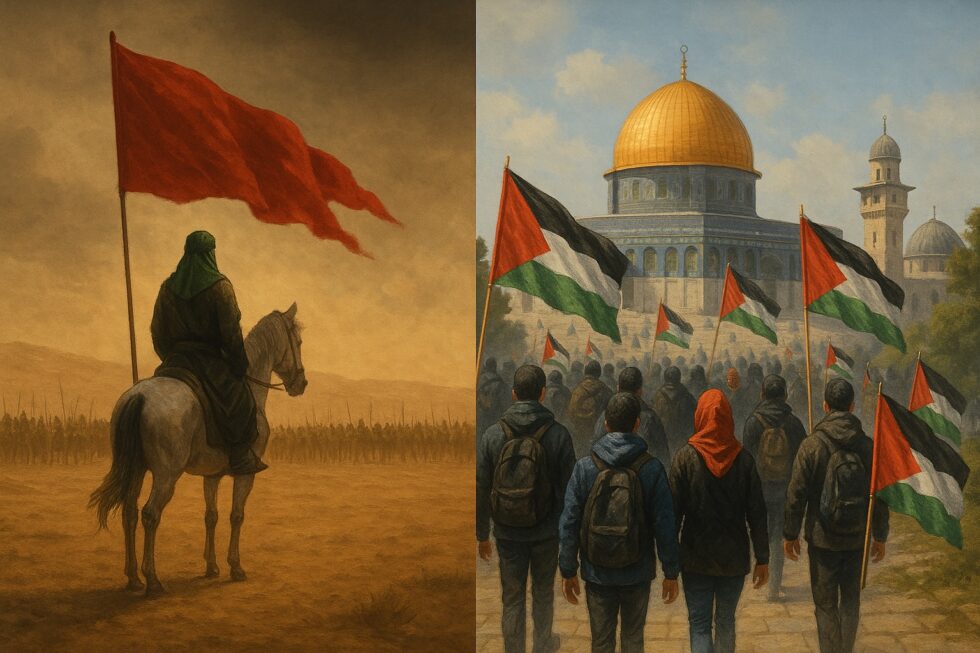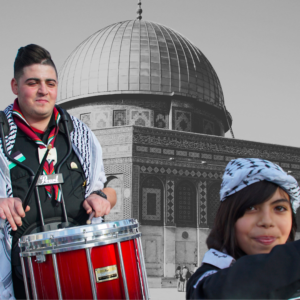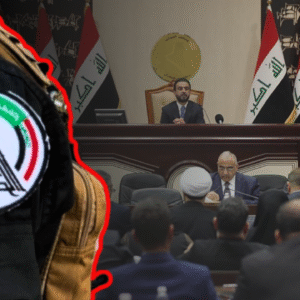From Karbala to Palestine: The Eternal Struggle for Justice and Liberation

The battle of Karbala has long been recognized as a powerful symbol of standing up against oppression and injustice—a core principle in Islam that calls for defending the oppressed and challenging tyranny in every form.
Today, the struggle against the Zionist regime can be viewed in a similar light: an ongoing resistance against an oppressive entity that threatens the sovereignty of the entire Muslim world.
The defiant stand taken by Hussain ibn Ali, the grandson of Prophet Muhammad, against the corrupt ruler Yazid ibn Mu’awiyah 14 centuries ago serves as an inspiration for every individual defending Palestine in its fight for dignity and rights.
Islam’s Teachings on Oppression
In Islam, oppression—known as dhulm—refers to any act of injustice, cruelty, or wrongdoing inflicted upon others – whether by individuals, groups, or rulers. It encompasses everything from denying basic rights to exerting unfair power over others.
Islam teaches that no one has the right to transgress the limits set by Allah, emphasizing that every form of oppression corrodes the moral fabric of society and violates human dignity.
The Qur’an explicitly condemns dhulm as a grave sin, and believers are commanded to always side with justice:
“O you who have faith! Be maintainers of justice…” (Qur’an, 4:135)
The Qur’an also warns that those who have even the slightest inclination towards perpetrators of dhulm will face severe consequences:
“Do not incline toward the wrongdoers, lest the Fire should touch you…” (Qur’an, 11:113)
The Prophet is reported to have said:
“Whoever pleases an unjust ruler, and deviates from the right path, is expelled from the religion of Allah.”
Enjoining Good and Forbidding Evil: A Foundational Islamic Mandate
At the heart of Islamic ethics lies the principle of enjoining what is good and forbidding what is wrong (amr bil ma‘ruf wa nahi ‘anil munkar).
This mandate calls on Muslims to actively promote justice and resist oppression, not as passive observers but as agents of change. It is considered a collective responsibility to uphold moral values and protect human rights:
“But the faithful, men and women, are comrades of one another: they bid what is right and forbid what is wrong…” (Qur’an, 9:71)
This principle formed the basis of Hussain ibn Ali’s uprising against Yazid, the tyrant ruler of his time:
“I seek to enjoin what is good and forbid what is evil and follow the traditions of my grandfather and my father.”
– Hussain ibn Abi
Prophet Muhammad’s Struggle Against Oppression
From the very beginning of his prophetic mission, Prophet Muhammad emphasized the moral responsibility of standing against injustice and wrongdoing in society. He taught that,
“The one who sees a wrong action done should prohibit it by his deed, if he is capable, of course; and if he cannot do that, he should prohibit it by his tongue, but if he is not able to do even that, he may forbid it by his heart.”
This powerful guidance underscores the duty of every individual to oppose oppression in whatever way they can. Furthermore, the Prophet declared:
“He who enjoins right and prohibits wrong is the vicegerent of both Allah and His Messenger on the earth.”
This point highlights that the struggle for justice is not only a social obligation but a sacred trust. These principles shaped Prophet Muhammad’s courageous leadership in challenging the entrenched tyranny and social injustices of Mecca, setting a foundation for reform grounded in equality, compassion, and accountability.
Prophet Muhammad challenged a society where a small elite controlled wealth and power, exploiting the poor, marginalizing women, and fueling tribal rivalries. He defended the rights of vulnerable groups such as orphans, widows, and slaves—people often neglected or abused in Meccan society.
For example, he condemned the widespread and brutal pre-Islamic practice of burying baby girls alive, declaring it forbidden and emphasizing the dignity of every child. Additionally, he promoted charitable giving (Zakat) as a religious duty to support the poor and needy, helping to redistribute wealth more fairly.
Through his teachings, Prophet Muhammad also called for the fair and humane treatment of all individuals, actively working to dismantle the deeply entrenched social inequalities and injustices of his time.
Hussain ibn Ali and the Battle of Karbala: The Archetype of Resistance
Following the death of Mu’awiyah, the founder of the Umayyad dynasty, power passed to his son Yazid—an autocratic ruler whose leadership marked a sharp departure from true Islamic values of justice.
Yazid’s regime was characterized by political repression, moral corruption, and the consolidation of absolute power. He sought to legitimize his rule through forced allegiance, using coercion to silence dissent and secure loyalty.
For many, his ascent to the caliphate represented not just a political shift, but a betrayal of prophetic principles and the transformation of Islamic leadership into hereditary monarchy. It was in this climate of tyranny that Hussain ibn Ali rose to challenge injustice.
Hussain’s refusal to pledge allegiance to Yazid was not a mere political gesture—it was a moral stand rooted in conscience and divine responsibility. As a direct descendant of the Prophet and a respected leader of the Muslim community, Hussain understood that his submission would lend religious legitimacy to a corrupt regime.
His stance was a rejection of complicity and a refusal to normalize despotism. His journey from Medina to Karbala was fueled by his unwavering commitment to the principle of enjoining good and forbidding wrong, even in the face of overwhelming odds. In his sermon at Mina, Hussain ibn Ali says,
“God mentions the duty of enjoining the good and forbidding the evil (amr bil ma‘ruf wa nahi ‘anil munkar) before all other duties, because He knows that if it is performed and is established in the society all other duties, the easy and the difficult, will also become established. The reason for this is that amr bil ma‘ruf wa nahi ‘anil munkar means summoning people to Islam, as well as resistance against injustice, opposing and struggling against oppressors…”
The tragic killing of Hussain ibn Ali and his family and companions in Karbala by Yazid’s army remains one of the most profound and tragic episodes in Islamic history. Outnumbered, cut off from water, and surrounded by enemies, Hussain chose martyrdom over submission.
His death was not in pursuit of power, but in defense of the absolute truth and human dignity, as he himself declared:
“O God! You know that everything we did was not prompted by rivalry for political power, nor for a search for wealth and abundance; rather it was done to demonstrate to men the shining principles and values of Your religion, to reform the affairs of Your land, to protect and secure the indisputable rights of Your oppressed servants, and to act in accordance with the duties You have established and the norms, laws, and ordinances You have decreed.”
This ultimate sacrifice transformed Karbala into a timeless symbol of resistance, echoing through centuries as a rallying cry for justice and defiance against all forms of tyranny.
At its heart, the message of Karbala is that standing for truth is not conditional on victory—it is a moral imperative, even when it demands the highest price. Hussain ibn Ali’s martyrdom was a deliberate act of witness against a regime that distorted the values of Islam for political gain.
Karbala teaches that silence in the face of injustice is itself a form of complicity, and that the defense of truth may require sacrifice, but never surrender. It is a legacy that transcends time, faith, and geography.
Ashura as a Catalyst for Modern-Day Political Resistance
The annual commemoration of Karbala has successfully served as a powerful source of inspiration throughout the Muslim world in the present era, symbolizing the fight against tyranny and the pursuit of justice.
A prominent example of this influence is the Islamic Revolution in Iran, where Hussain ibn Ali’s movement became a rallying cry for the nation to overthrow the US-backed dictatorship of the Shah. This historic event demonstrated how the spirit of Karbala continues to inspire movements seeking to challenge oppression and establish justice.
Imam Khomeini, the leader of the Islamic Revolution, deliberately launched and framed his movement against the Shah in 1963 around the day of Ashura, the day of Hussain ibn Ali’s martyrdom.
By aligning his movement with Ashura, he invoked deep religious and emotional sentiments, reminding the public that their struggle against the Shah’s corrupt rule was a modern continuation of Hussain’s historic fight against oppression.
This connection inspired courage and sacrifice among the Iranian nation and helped the masses realize that their political struggle was also a spiritual and moral obligation, making opposition to the Shah not just a political act, but a religious duty.
During the Iranian Revolution, key moments were deliberately timed to coincide with Ashura commemorations to maximize impact. For example, mass protests and demonstrations often took place during Muharram gatherings which served as fertile ground for spreading revolutionary messages.
In this way, Ashura was more than a commemorative event; it became a rallying point and source of motivation for a revolutionary movement rooted in Islamic values, social justice, and the fight against tyranny.
This is reflected in Imam Khomeini’s own words:
“This revolution is a reflection of the revolt of Ashura. They do not know that weeping over Imam Hussain’s martyrdom is to revive the sense that a minor group stood against a major empire. It is a decree directed by Imam Hussain for all people, ‘Everyday is Ashura and everywhere, Karbala.’ The revolt conveys the message that the revolution should be perpetuated everyday and everywhere.”
Today, several Gulf kingdoms continue to ban or severely restrict Muharram gatherings, especially public processions and rituals that commemorate Ashura. These restrictions are often aimed at limiting the political expression and social unity that such gatherings foster.
Despite these bans, Muharram remains a potent symbol of defiance and identity for many across the region. The continued suppression of these religious ceremonies underscores the enduring power of Ashura as a rallying point against oppression and the fear authoritarian regimes have of its unifying influence.
Palestine as Today’s Karbala
The martyrdom of Hussain ibn Ali in Karbala stands as one of the most profound and transformative events in Islamic history. It is not merely a moment of grief, but a powerful embodiment of the Islamic moral imperative: to stand against oppression, to enjoin what is right, and to forbid what is wrong.
The story of Karbala is not a relic of the past, but a living guide for resisting injustice in every age – whether it is the civil rights movement in the West standing up against racial segregation and inequality, or the resistance of the people of Yemen in a war imposed upon them by Saudi Arabia and its Western allies.
Today, nowhere is this struggle more pressing than in Palestine, where millions endure injustice, displacement, and violence under occupation. With the Zionist regime’s expansionist policies and military aggression targeting the Muslim world, the issue of Palestine deserves to be recognized by Muslims as today’s Karbala, demanding unwavering attention and action.
Through wars and occupation, settlement expansion, and political interference, the Zionist regime’s actions threaten the sovereignty and security of the entire Muslim world. It is incumbent upon every Muslim to internalize this connection—not merely as distant sympathy, but as a religious and moral duty to oppose injustice.
The powerful symbolism of Karbala calls Muslims to raise their voices in solidarity, support resistance efforts, and challenge the global systems that enable such oppression. To neglect Palestine is to ignore the very lessons Hussain’s sacrifice teaches us: that standing against tyranny is not optional, but a sacred obligation for all believers.
Martyr Murtadha Mutahhari powerfully articulated this principle in a 1970 Ashura sermon:
“By God, the issue that has made the heart of the Prophet Muhammad bleed today is this very issue. The story that has made the heart of Hussain ibn Ali bleed is this matter… If Hussain ibn Ali were here today, he would say: If you want to mourn for me, then your slogan today must be Palestine… the Shimr of 1,300 years ago is dead — recognize today’s Shimr. Today, the walls and streets of this city should shake with the slogan of Palestine.”
By drawing a direct line from the historical tyrants of Karbala to contemporary oppressors, Mutahhari urged Muslims to see the mourning of Hussain ibn Ali not as a ritual of the past, but as an active and urgent political stance.
His words reframed the symbolism of Ashura into a call for awareness, action, and solidarity with the oppressed, especially the Palestinian people.
This recognition becomes even more critical when considering the broader geopolitical realities: while a majority of resistance movements—inspired by the uprising and sacrifice of Hussain—are resisting the Zionist entity in support of Palestine, most Muslim states have chosen to normalize ties with Israel, betraying the spirit of Karbala and the Islamic mandate to resist injustice.
In this context, the legacy of Hussain ibn Ali serves as a powerful reminder that the fight against tyranny is a sacred obligation – demanding unity, courage, and unwavering commitment from the Muslim Ummah.
If you value our journalism…
TMJ News is committed to remaining an independent, reader-funded news platform. A small donation from our valuable readers like you keeps us running so that we can keep our reporting open to all! We’ve launched a fundraising campaign to raise the $10,000 we need to meet our publishing costs this year, and it’d mean the world to us if you’d make a monthly or one-time donation to help. If you value what we publish and agree that our world needs alternative voices like ours in the media, please give what you can today.










